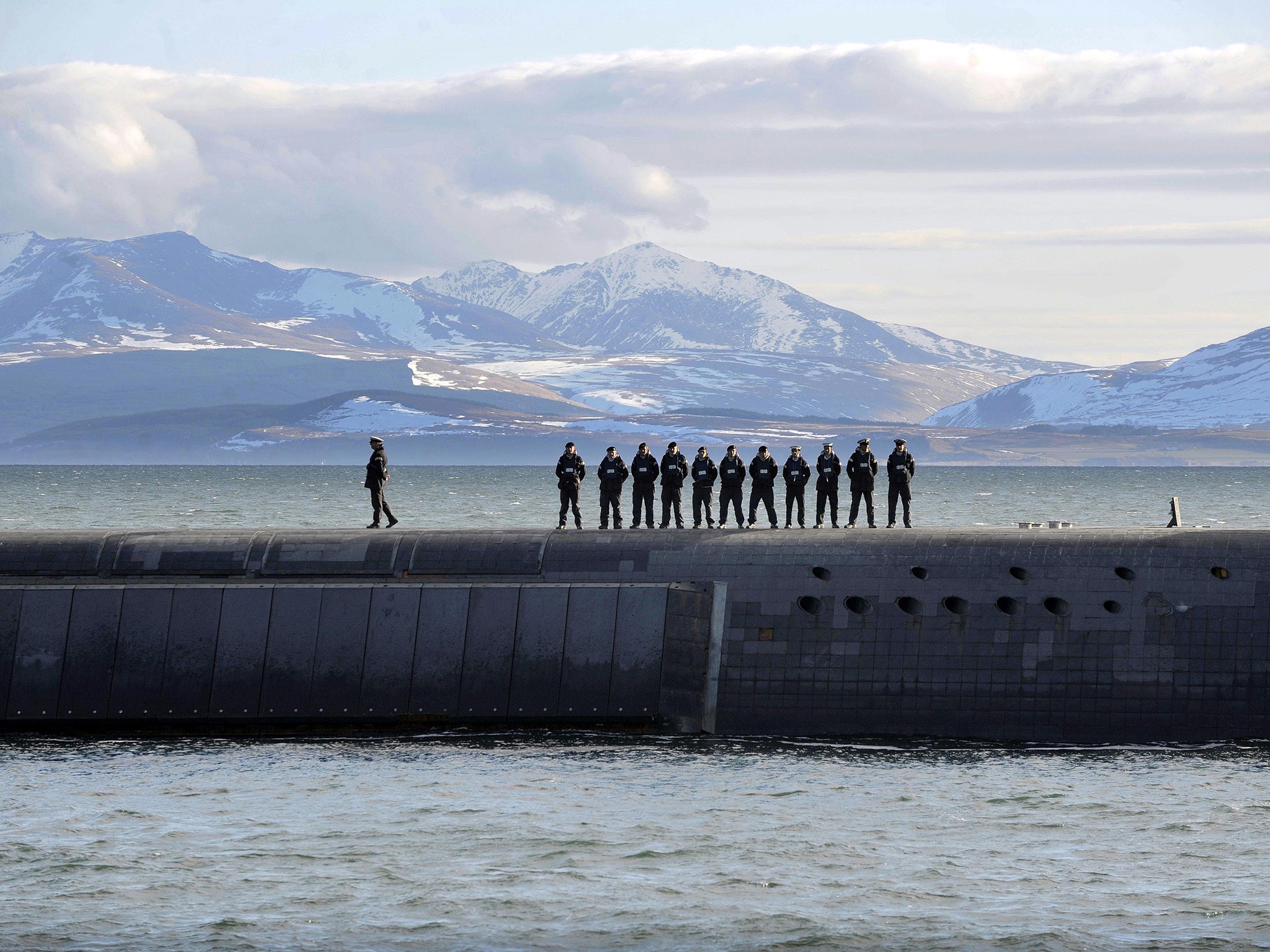Like Switzerland, Britain could prosper outside the EU – but not if we waste billions on Trident
Wars are ruinously expensive undertakings. A Britain outside the EU, intent on becoming a 'big Switzerland', should be less likely to get involved in them, at least in theory


Your support helps us to tell the story
From reproductive rights to climate change to Big Tech, The Independent is on the ground when the story is developing. Whether it's investigating the financials of Elon Musk's pro-Trump PAC or producing our latest documentary, 'The A Word', which shines a light on the American women fighting for reproductive rights, we know how important it is to parse out the facts from the messaging.
At such a critical moment in US history, we need reporters on the ground. Your donation allows us to keep sending journalists to speak to both sides of the story.
The Independent is trusted by Americans across the entire political spectrum. And unlike many other quality news outlets, we choose not to lock Americans out of our reporting and analysis with paywalls. We believe quality journalism should be available to everyone, paid for by those who can afford it.
Your support makes all the difference.Want to draw some comfort from two of the greatest tragedies to befall this country in the past couple of decades?
I’m talking, of course, about Brexit and the Iraq War, which has managed to temporarily knock the former from the top of the news thanks to the much-delayed publication of the Chilcot report.
Some time ago I was discussing Brexit with a colleague and they put forward a scenario where the UK did quite well outside the EU as a sort of “big Switzerland”. To do that Britain would, of course, have to remain in the single market, but let’s presume that we do and consider some of its virtues.
Switzerland has its challenges. Its banking sector fared no better than ours in the aftermath of the financial crisis, and it has taken quite a few knocks (deservedly) over its use by wealthy individuals to hide their assets from the taxman. Its economy also took a nasty hit when the Swiss Central Bank performed an unexpected volte face on the Swiss franc.
However, the forecasts for Switzerland are for modest growth, as opposed to our impending recession, and it remains a much richer country than the UK based on per capita GDP. The country’s neutrality doesn’t hurt when it comes to that; the Swiss don’t involve themselves in wars, even when they arguably should (see: 1939-1945).
Most of the time, when people discuss wars, they (understandably) focus on the human cost. But the economic cost is also quite considerable. Back in 2010, the estimated cost of the UK’s involvement in Iraq and Afghanistan was a staggering £18bn, just for military operations on top of the normal defence budget. And even that was according to official figures that did not cover some considerable expenses, such as troops' basic salaries, or the significant cost of providing long-term care for the seriously wounded. You can also add hundreds of millions of pounds on aid and security for UK officials working out there.
And so it goes on. Wars are ruinously expensive undertakings. A Britain outside the EU, intent on becoming a “big Switzerland”, should be less likely to get involved in them – at least in theory. We’ll have less financial flexibility for a start, not to mention our reduced international prestige. Then there is that Chilcot report, with all its recommendations about what should happen before we embark on any future cavalier undertakings, plus a population that seems to want its leaders to put Britain’s interests at the front of the queue. Which presumably means that, as well as turning our backs on Europe, they’d prefer it if they weren’t so keen to play poodle to the American pitbull. Involving oneself in other people’s conflicts wouldn’t appear to tally with the will of the (Brexit) people.
So we’ll sit outside the EU, adopt a position of neutrality, concentrate on banking, cuckoo clocks and chocolate, or our own equivalent, without the stain of any Nazi gold in our banks or the cost of any future conflicts. Hooray.
Hang on, what’s that? Theresa May, the favourite in the race to be the next Conservative leader and prime minister, wants a Commons vote on Trident – a £15bn white elephant that we can never use. She claims she wants it because she’s worried about Russia and North Korea. And, more to the point, she still wants invitations to all the big countries’ parties.
Oh dear. Better shelve those dreams of being big Switzerland. It looks like we’ll still be (poor) Little Britain after all.
Join our commenting forum
Join thought-provoking conversations, follow other Independent readers and see their replies
Comments